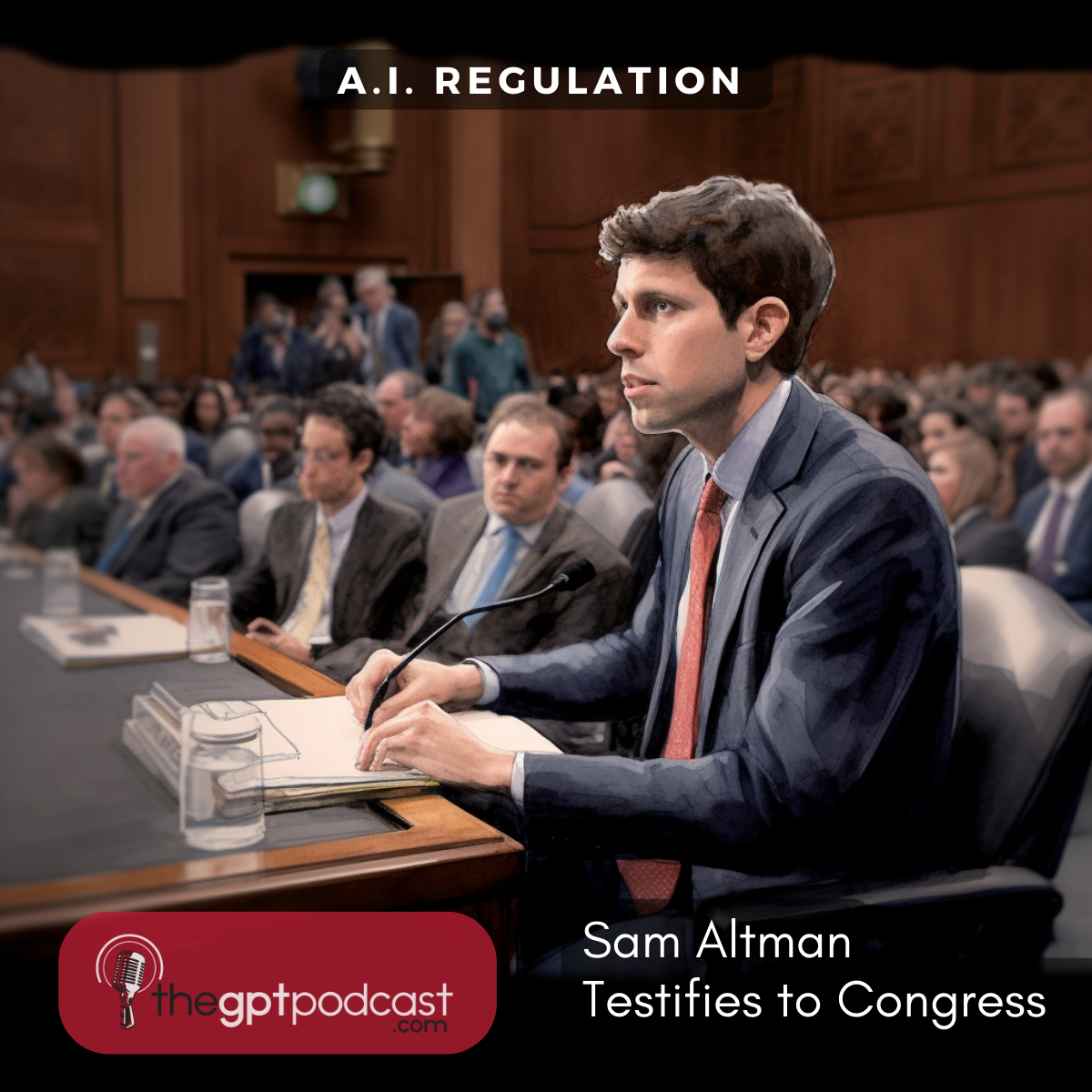Insights and Challenges from Sam Altman's AI Regulation Testimony
🎙️ Exciting insights from Sam Altman's testimony on AI regulation! Transparency, safety, and democratization discussed. 🌐🔒💡 Corporate responsibility, public recourse, and global cooperation crucial. Let's navigate the challenges and embrace responsible AI use. 💪🤝 #AIregulation

In a recent congressional hearing, Sam Altman, the chief of ChatGPT, provided testimony on the pressing issue of AI regulation. Altman's insights shed light on the potential risks and challenges associated with artificial intelligence. This blog post aims to summarize the key points discussed during the hearing, offering a comprehensive overview of the important topics addressed.
The Need for Regulation: Altman stressed the significance of regulating AI technology to mitigate risks effectively. Transparency, accountability, and strict rules were highlighted as crucial elements in areas such as elections, misinformation, and medical advice generated by AI systems.
Identifying High-Risk Areas: The discussion revolved around identifying other high-risk areas requiring special attention. Altman emphasized the dangers of medical and psychiatric misinformation, potential misuse of AI as ersatz therapists, concerns regarding internet access, and the long-term risks associated with advancing AI capabilities.
Principles for Effective Regulation: Transparency, accountability, and limits on use were identified as fundamental principles for AI regulation. Altman, along with other experts, underscored the importance of enforcing these principles to address current risks associated with AI technology effectively.
Ensuring Safe Deployment: Altman emphasized the need for safety cases and comprehensive standards before deploying AI models. While acknowledging the risks, he also highlighted the importance of striking a balance between regulation and fostering innovation and progress.
Corporate Power and Democratization: The issue of corporate power and concentration in the AI industry was raised. Altman acknowledged the importance of democratizing access to AI tools and preventing a small number of dominant players from monopolizing the technology.
Public Right of Action: Discussions touched upon the idea of a public right of action, enabling individuals harmed by AI technology to seek legal recourse. While Altman supported clearer laws and consumer protection, he highlighted challenges associated with litigation, including potential delays and loopholes.
Industry Responsibility: Altman stressed the importance of industry taking proactive measures in prioritizing ethics and responsible technology. Waiting for legislative action was discouraged, with emphasis placed on industry-driven efforts to implement safety protocols and guidelines.
Congressional Action and Global Perspectives: The hearing concluded with considerations about congressional action and the potential establishment of a regulatory agency. Participants acknowledged the rapid pace of AI development and the need to balance regulatory measures with global competitiveness, ensuring effective safeguards and accountability.
Sam Altman's testimony during the congressional hearing on AI regulation brought crucial insights and highlighted the challenges associated with the development and deployment of AI systems. The discussions underscored the significance of transparency, accountability, and responsible use of AI technology to address potential risks effectively. It is clear that a collaborative effort between industry, government, and stakeholders is essential to strike the right balance in regulating AI and harnessing its benefits for society.

